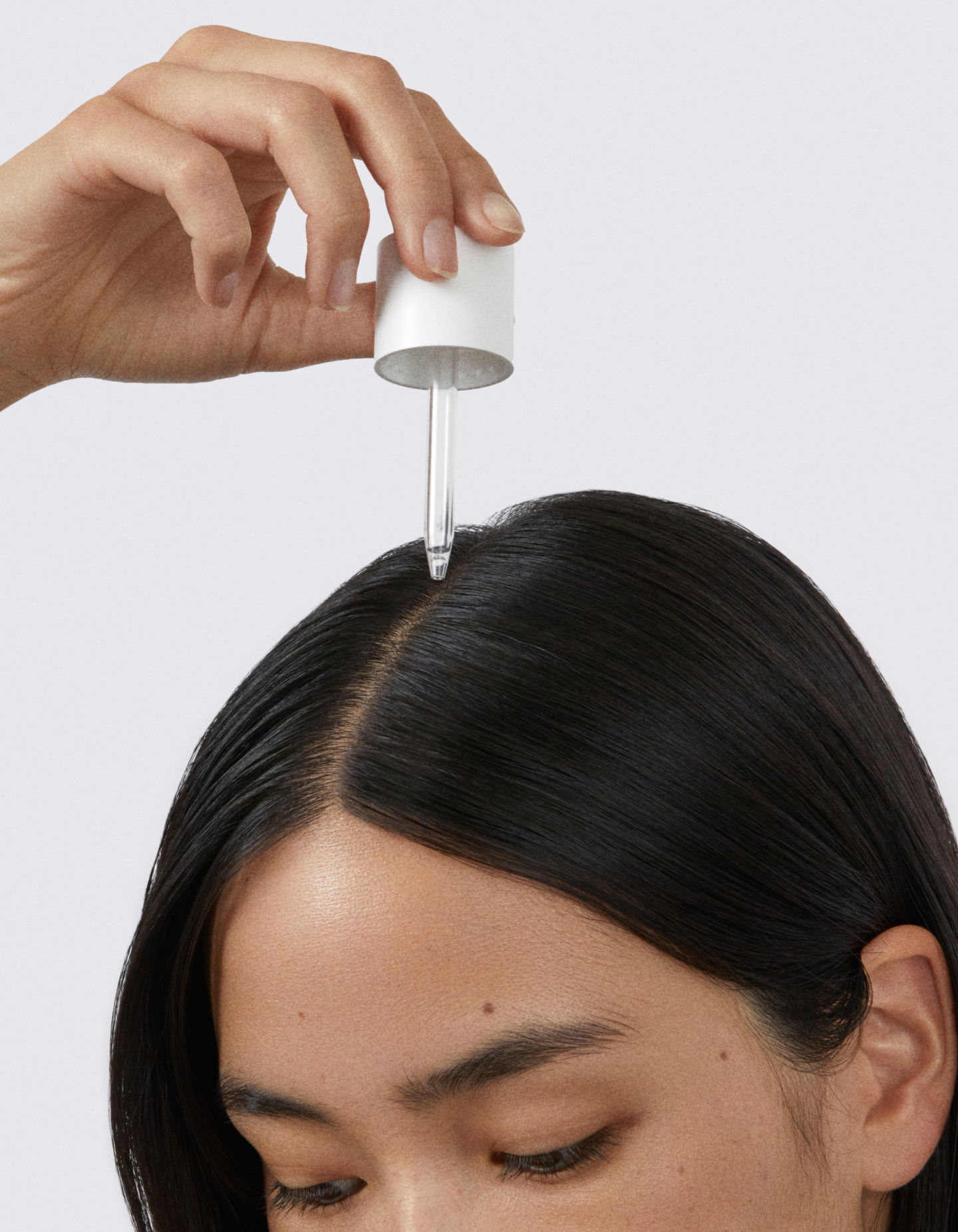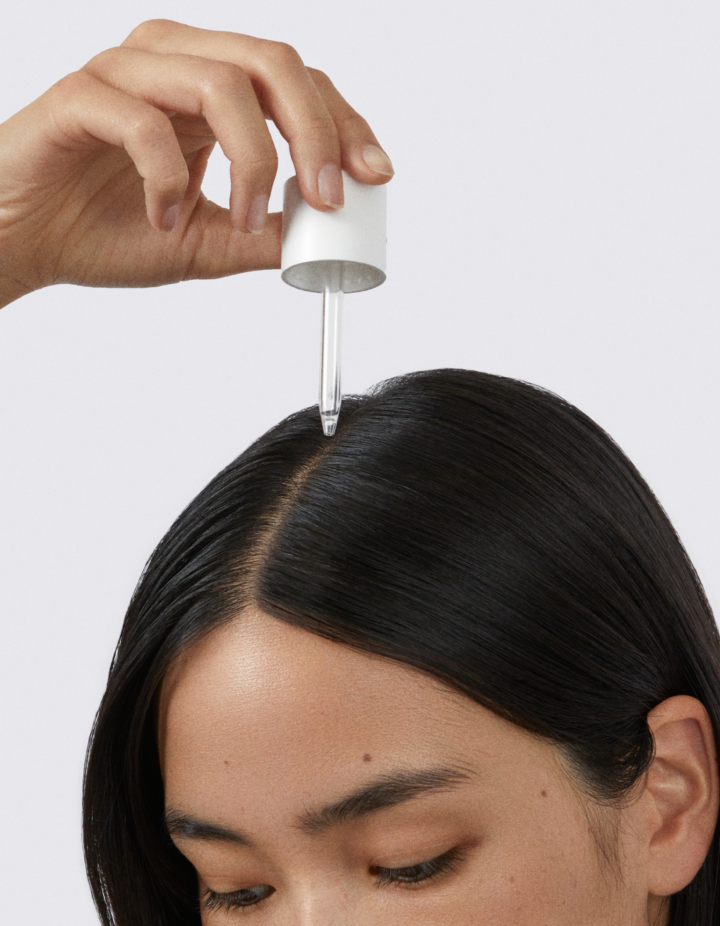This article was written in partnership with Act+Acre. Use CODE: HATCH20 for 20% off your first order of Ace+Acre.
Navigating life postpartum for the first time is something you can never fully prepare for, no matter how ready one may feel. Every woman’s experience is uniquely different, though all new mothers may go through similar challenges—one of these being postpartum hair loss.
We caught up with board-certified trichologist and celebrity hair stylist, Helen Reavey, to answer the most common questions regarding postpartum hair loss and discover the steps new mothers can take to minimize its effects.
Why does postpartum hair loss happen?
Postpartum hair loss is caused by the rapid drop in estrogen levels that occurs postpartum, leading to more hair shedding than usual. During pregnancy, the hormones your body produces cause many hairs in the growth phase to enter the resting phase suddenly. Hair typically remains in the resting phase for a few months before finally shedding off.
When should I expect my hair to begin shedding?
You will typically notice hair shedding around 3-4 months after giving birth, as this is the typical length of time that your hair remains in the resting phase before the follicle releases the hair and it falls out.
When will it grow back?
Rest assured, this hair loss is only temporary, typically lasting around six months to a year. Most mothers should expect to regain complete fullness of their hair by the time of their child’s first birthday.
What can I do to prevent my hair from falling out?
Thankfully, many steps can be taken to minimize the effects both before and after one notices the shedding begin. Here are my top recommendations:
Implement a Hair Growth Supplement During Pregnancy
Your hair is the last to receive any nutrients that enter your body—which is mainly the case during pregnancy as your body prioritizes nourishing your baby. By implementing a pregnancy-safe supplement, like the Act+Acre Planted Based Capsules, you can provide your hair with the nutrients it needs to maintain the healthiest possible growth cycle.
Stimulate the Scalp with Frequent Scalp Massages
Maintaining circulation across the scalp is critical for healthy growth, as it works to keep your hair follicles stimulated and strengthen the hair root. You can perform this daily with your hands or incorporate a Scalp Gua Sha for increased relaxation.
Keep Your Scalp Nourished with a Weekly Treatment
Provide your scalp with the nourishment it needs by implementing a weekly Scalp Detox. A scalp treatment can help dissolve impurities deep within the follicle, gently removing pollutants and product build-up while hydrating and nourishing the scalp. This brings your scalp back to a balanced state, restoring the dermal structure and encouraging healthy hair growth.
Incorporate a Daily Growth Serum
Applying a daily growth serum like the Act+Acre Stem Cell Serum can provide excellent results in minimizing the effects of postpartum hair loss. The particular composition of the Stem Cell Serum is rich in phytonutrients, which possess remarkable longevity properties, helping to promote and extend the growth phase of hair follicles and lessen overall hair loss.
For an increased growth effect, you could implement a Scalp Dermaroller into your routine once per week as well. The tool creates micro-channels on the scalp to increase topical product absorption, further stimulating hair growth.
Is there a chance my hair might never grow back?
If you have concerns about how much hair you are losing or have not begun to regain fullness in your hair after a year postpartum, I recommend visiting a trichologist or dermatologist. They can analyze your scalp and provide you with more personal recommendations on what steps you may need to take to begin seeing more growth.
Remember that consistency and patience is critical to revitalizing hair after pregnancy. While it can be much easier said than done, particularly given the ever-changing reality that having a child creates, penciling in time for self-care should always hold importance. Small, daily actions can often lead to the best results.




